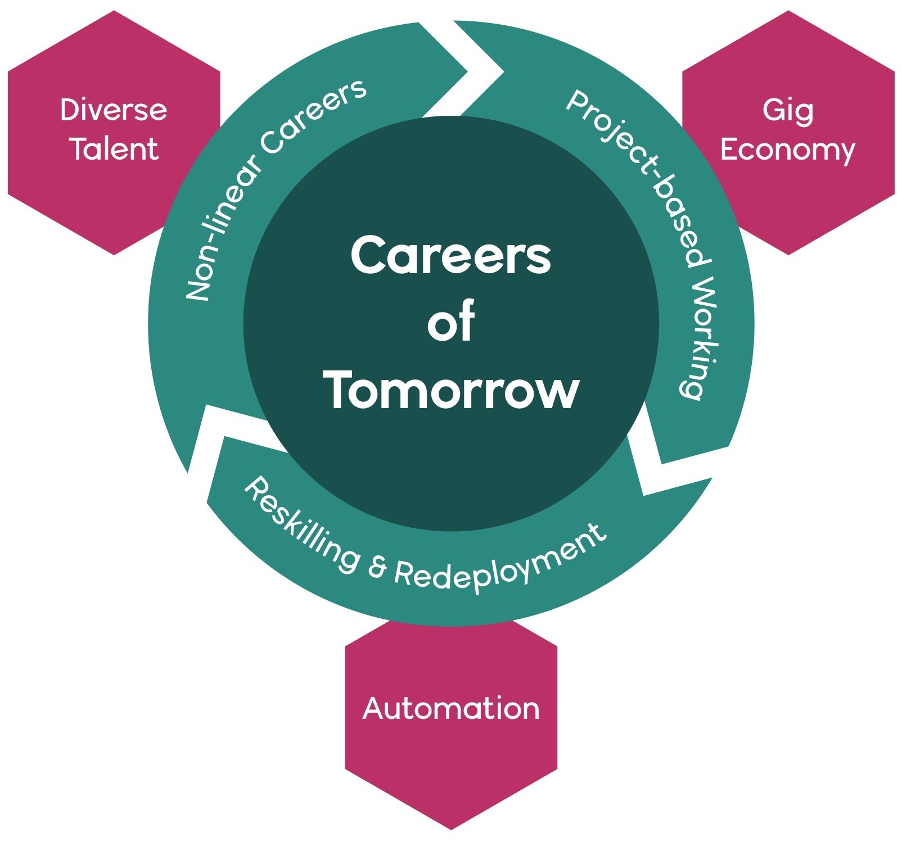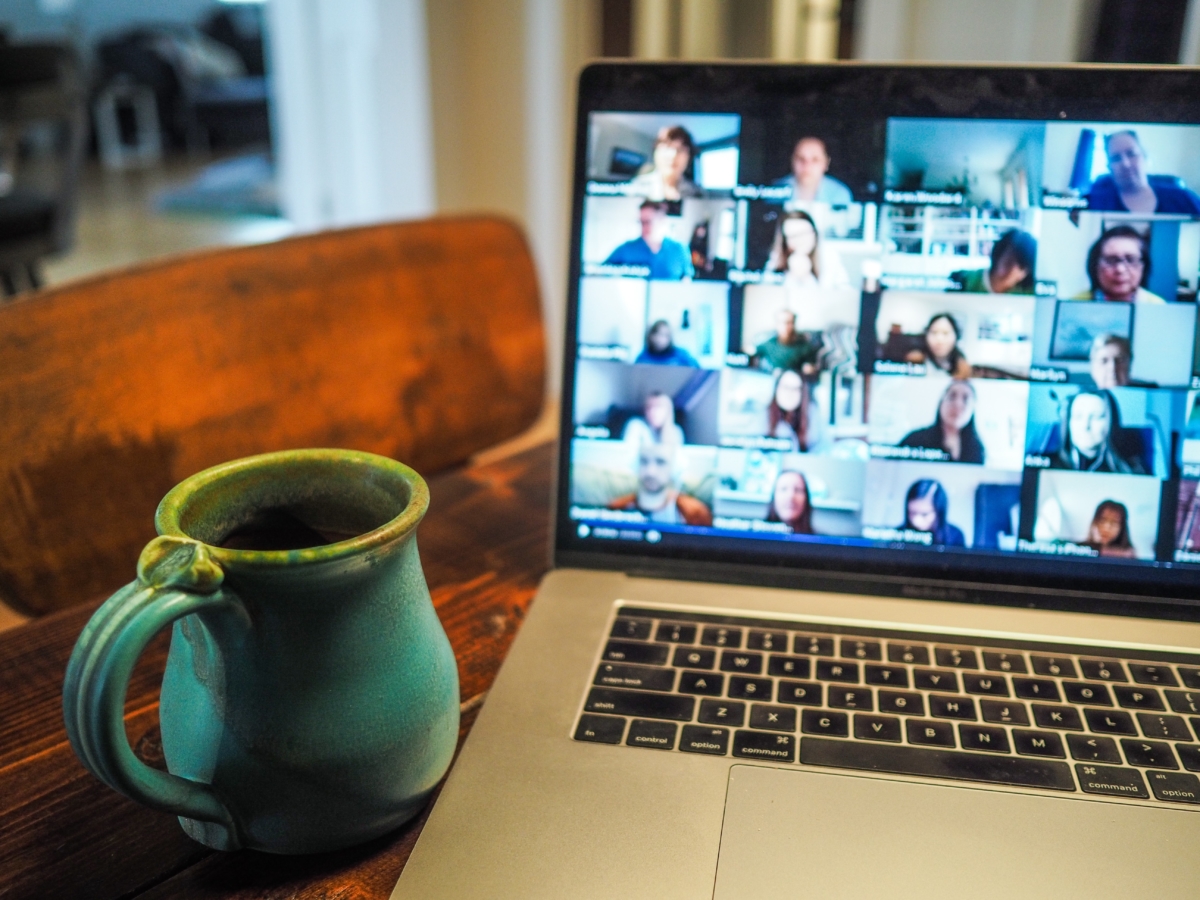The nature of work and the shape of careers are changing fast during the coronavirus pandemic. How should employers, managers and individuals respond? This summary includes highlights from Careers of Tomorrow Today.
The COVID-19 crisis has afflicted organisations with many different kinds of dis-ease. Some shrunk, such as airlines and aircraft makers; ground to a temporary halt like hotels; or have been struck down completely like thousands of retailers. Others have seen a surge in demand, such as online shopping and delivery services; or seized an opportunity to pivot towards healthcare or home-working markets, like the stage-set builder in Australia which, starved of gigs, launched 30 new home furniture products in two months.
Their situations are diverse, but there are some common threads, based on an immediate focus on resilience, adaptation and in some cases transformational change. The actions of employers during the crisis and beyond will have long-term effects on their relationship with their employees. There is potential to build or to destroy reputation and morale.

In Careers of Tomorrow Today, our research team at The Career Innovation Company have taken a medium-term view. We’ve identified how we envisage careers will be different on a sustained basis and what this means today for workers, their managers, and strategic leaders – especially people-leaders (HR).

All three of the major trends we highlighted last year in our Careers of Tomorrow report have accelerated as a result of the COVID crisis. We’ve identified some of the most likely changes – highlighting what’s predictable and what’s less certain:
Diverse Talent, with Non-linear Careers
Suddenly, more people have proved they can work away from the office, at flexible times. This can facilitate the discovery and deployment of diverse talent. If organisations can maintain the levels of trust and good management that agile working requires, they can tap into new talent pools and retain access to scarce talent for longer.
Uncertainty: What will be the impact of remote working on all forms of diversity and inclusion at work?
Gig Economy Working Practices
The rapid mobilisation of people in response to COVID has shown what is possible. People have changed their daily work almost overnight, not only in terms of location but also in the focus of the work itself, rapidly learning new skills (most obviously digital skills) and applying them on a project-by-project basis rather than in permanent roles.
Uncertainty: Will self-employment continue to grow in popularity? Since COVID, freelancing may look less attractive for those who have a choice.
Automation
Dramatic cost-cutting, together with the growth in online services, will increase the pace of automation. This will accelerate the impacts we forecast in Careers of Tomorrow – on jobs, skills and career paths.
For individuals, this could be the final wake-up call for people who have buried their heads in the sand so far and not thought about their future work and skills. People must be proactive spotting parts of their own work that could be automated, taking the future into their own hands. The result of this will be increased productivity. At its best, it will also mean better work, if we automate the parts that are least fulfilling.
Uncertainty: How can we demonstrate in practical ways that we care for front-line workers, and those whose jobs are lost as a result of COVID?
Implications for Human Resources
Strategic people-leaders (HR) have found themselves centre-stage: first, in caring for people practically, ensuring safety and resilience; second, in adapting technology, working practices and workspaces; and finally, in shaping strategy and skills for the future.
This is the moment for HR to retain its position at the heart of organisations. How? First, by offering to facilitate a conversation that helps to keep the best of what’s changed. HR will need to respond in other ways too: helping people to redesign work, taking a more agile approach to planning (adapting as things continue to change), polling people regularly (while using data with greater care for privacy), securing the place of wellbeing and resilience. HR professionals will also need to rethink their organisation’s career proposition and promise what is achievable.
Careers of Tomorrow Today
We cannot escape the pace of change to come. The IMF anticipates the worst global recession since the Great Depression, while in the UK we are facing potentially the worst economic recession since the early 18th century. A recession – or a longer-term depression – has inevitable consequences: high unemployment with associated hardship, austerity or even greater debt leading to increased taxation.
The implications of this are not hard to imagine. A generation of continuous economic growth has left some of us wealthier – notably people, groups and nations that hold power – while at the same time, inequality has soared. What we are seeing is not a purely economic phenomenon, but an ethical, social and political crisis – one that has been exacerbated as links between race, poverty and injustice increasingly come to the fore.
Now, in the face of COVID-19, we are suddenly seeing people recognise the importance of things that have in practical terms been neglected: the value of community, of voluntary unpaid work, of resilient local supply chains, and of front-line workers. It remains to be seen what will this mean in practice when the health crisis turns into an economic one.
Are there opportunities as well as risks, as we emerge from lockdown? Absolutely. The advantages for businesses include cheap finance, a dynamic labour market with lower costs and unprecedented opportunities to harness talent and drive innovation and growth.
We should seize the opportunities, but do so in a different way – a way that has justice, purpose and humanity at its heart, and allows economics to be our servant not our master. People are desperate for visionary and imaginative leadership. Based on recent experience, they may be more hopeful of getting it from their employers than their politicians. Each of us can step into the gap. The time has come: the careers of tomorrow are here today.
We’ve created resources for individuals, managers and strategic people-leaders to help you seize the moment – harnessing talent, growing skills for the future, moving people into new roles, and doing all this in a way that is positive, human and caring. Find out more at The Agile Response.





